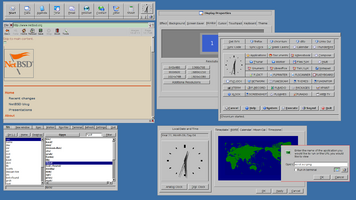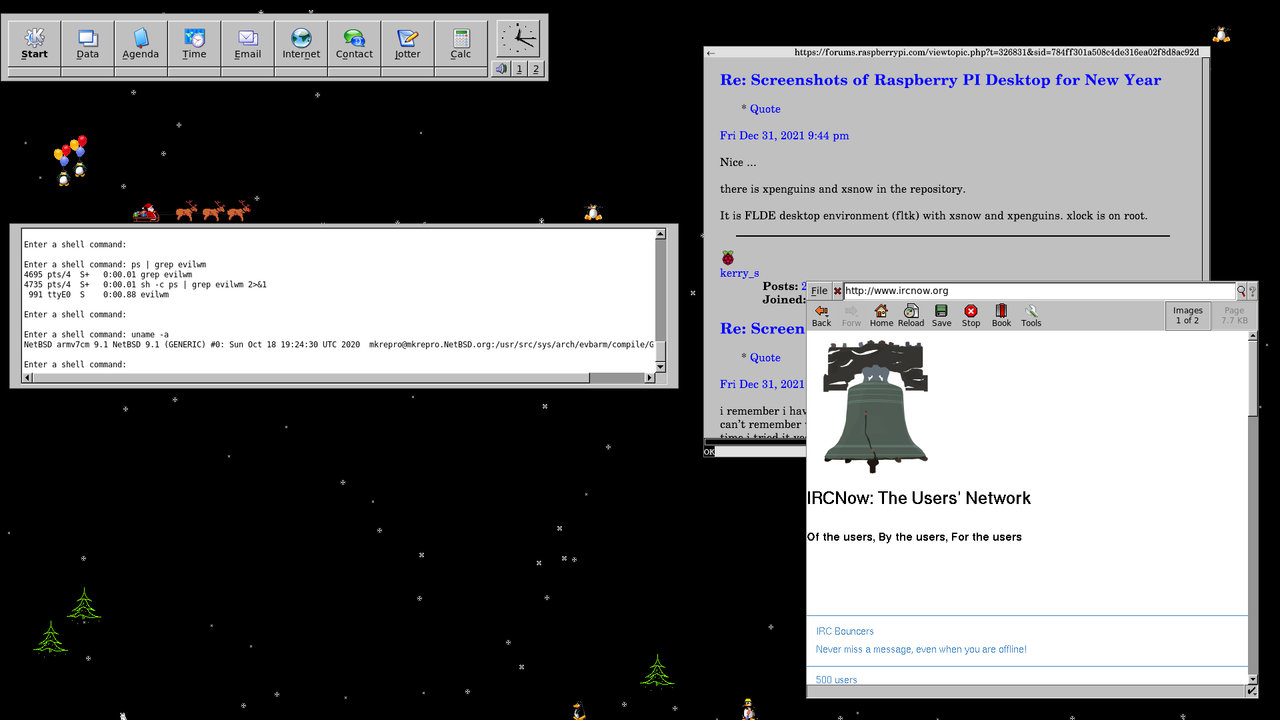openbsd98324
Still Fresh
- Joined
- Jan 7, 2022
- Messages
- 60
Hello,
I consider to order a mini arm machine as a notebook replacement. Very light and thin: pinebook64. It is very affordable and sufficiently powerful.
It would replace my notebook, getting older.
However Pyra is interesting project, keep going !
Could the device Pyra be slightly cheaper?
Concerning NetBSD, there is into the kernel arm*/aarch64 so support yet. However, since Pyra has similar hardware as few ARMs, it would be possible.
Eventually the WIFI won't work, but we can use the second USB for a classic WIFI Dongle, urtwn0.
Kind regards,
James
--
FLDE Desktop for Pyra? [attached]
I consider to order a mini arm machine as a notebook replacement. Very light and thin: pinebook64. It is very affordable and sufficiently powerful.
It would replace my notebook, getting older.
However Pyra is interesting project, keep going !
Could the device Pyra be slightly cheaper?
Concerning NetBSD, there is into the kernel arm*/aarch64 so support yet. However, since Pyra has similar hardware as few ARMs, it would be possible.
Eventually the WIFI won't work, but we can use the second USB for a classic WIFI Dongle, urtwn0.
Kind regards,
James
--
FLDE Desktop for Pyra? [attached]



